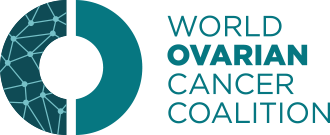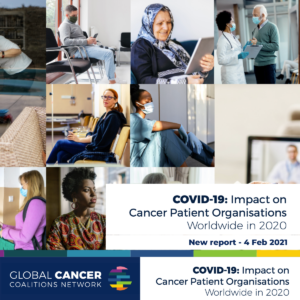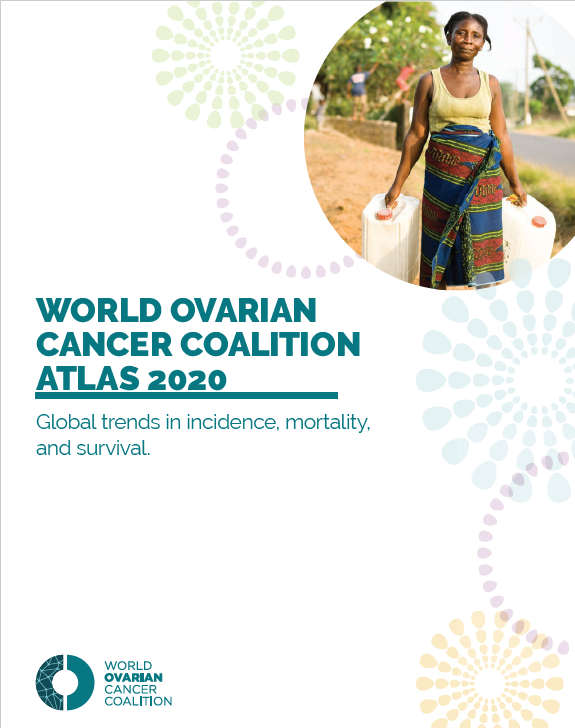Insights will outline challenges and opportunities to improve equitable access and affordability to essential medicines in ovarian cancer
Toronto, Canada, September 7, 2022 – Today, The World Ovarian Cancer Coalition (Coalition), announced that it will release findings from a new report titled, The Journey to More Equitable Ovarian Cancer Care, Access to Essential Medicines Roundtable Report, that identifies challenges and opportunities surrounding access and affordability of essential medicines in low-and-middle-income countries (LMICs) for women with ovarian cancer. The report summarizes insights from an April 2022 roundtable discussion convened by the Coalition, featuring a diverse panel of global experts including clinicians, policy experts, NGOs, and ovarian cancer patient advocates. Highlights of the report are to be presented prior to the International Gynecologic Cancer Society Annual Meeting on Wednesday, September 28, 2022, at 8:00am EDT at the Arlo Nomad Hotel in Manhattan, NY, with a virtual option.
By 2040, the number of women around the world diagnosed with ovarian cancer will rise almost 42% and the number of women dying from ovarian cancer each year will increase by 50%. Furthermore, based on 2020 mortality rates, if nothing changes, by 2040 it is estimated that over four million women will die from ovarian cancer worldwide, with the majority of those lost from LMICs. The Roundtable aimed to identify challenges and opportunities to improve access to essential medicines and inform the Coalition on actions it could take to advocate for better access to cancer medicines.
“The burden of ovarian cancer disproportionally impacts countries with minimal resources as over 70% of women diagnosed with ovarian cancer live in LMICs. Access to treatment is vital for all women regardless of where they live, but for those in lower income settings it is especially important to address the access challenge now,” said Clara MacKay, CEO of the Coalition. “Barriers to accessing basic care are complex and require coordinated efforts. By partnering with the International Gynecological Cancer Society to expand our initial Every Woman Study™, and with the knowledge gained from the Roundtable, we hope to empower the global community to recognize that ovarian cancer needs to be a priority that requires action at a global and national level.”
In addition to discussing the access to medicines results, the briefing will also cover early anecdotal reports and details of the Every Woman Study™: Low- and Middle-Income Edition. Presenting in person or virtually at the event will be representatives from the Coalition including the Study Lead, their Study partner, the International Gynecologic Cancer Society, along with several of the Study’s Oversight Committee members. Expanding on the 2018 Every Woman Study™️, this new iteration will document the experiences of women with ovarian cancer in up to 30 LMICs, highlighting the true patient experience and the ways in which ovarian cancer is impacting the lives of women around the world. Initial results are expected in the second half of 2023.
“There is a significant lack of local data within LMICs which hinders the development of accessible cancer treatment and services for those populations,” said Frances Reid, Director of Programmes for the Coalition and Study Lead of the Every Woman Study™: Low- and Middle-Income Edition. “By expanding these data, we hope to raise awareness of those gaps in care and support women and clinicians to tackle the societal, systematic and practical barriers that prevent women from accessing the best care possible.”
“The time is now for global policymakers and governments to recognize the impact of ovarian cancer on women, families, societies, and economies,” said Mary Eiken, CEO of the International Gynecologic Cancer Society. “The concept of equity is embedded into the core of our work and this joint project speaks to the power of collaboration and the importance of bridging the widening gap for women worldwide.”
Click here for the electronic press kit
About the World Ovarian Cancer Coalition
The World Ovarian Cancer Coalition is a not-for-profit organization, formally established in 2016, working across the globe towards a world where every woman with ovarian cancer has the best chance of survival, and the best quality of life – wherever she may live.
The Coalition builds on the significant impact of the annual flagship ovarian cancer awareness campaign – World Ovarian Cancer Day, started in 2013 and the ground-breaking Every Woman Study™ published in 2018. Building on the Study, the Coalition launched the Global Ovarian Cancer Charter at the International Gynecologic Cancer Society (IGCS) annual meeting in 2020. The Charter, a living document, pivots around six Global Goals and is a clear call-to-action for all those committed to improving survival and quality of life for women with ovarian cancer. In 2022 and in partnership with IGCS, the Coalition is undertaking the Every Woman Study™️: Low- and Middle-Income Edition in over 25 countries. This next generation of the Study will for the first-time detail the experiences of women living with an ovarian cancer diagnosis in settings that, for a number of reasons, have been until now overlooked. Initial results from this Study are due out in 2023.
About the International Gynecologic Cancer Society
Established in 1987 as a not-for-profit, the International Gynecologic Cancer Society is a partnership of advocates, gynecologic oncologists, radiation oncologists, medical oncologists, pathologists, and other clinicians and researchers who devote their professional lives to the field of gynecologic oncology and to uniting the globe in the fight against gynecologic cancers.
The mission of IGCS is to enhance the care of those affected by gynecologic cancers worldwide through education and training and public awareness. The society works to achieve its mission through strategic collaborations with regional and international organizations, hosting and supporting scientific meetings, promoting research and publications, providing mentorship and training opportunities and patient advocacy programming.
The concept of global health equity is embedded in the IGCS mission and is reflected in the breadth of its membership and the design and implementation of its programs. With over 3,000 members from low-, middle-, and high-income countries around the globe, IGCS has purposefully developed an inclusive membership framework that encourages interaction and growth across diverse social, political, and health care systems. Through this framework, IGCS connects members with specific needs to those with corresponding resources and programs; forms partnerships; educates, trains, and mentors clinicians, survivors-patients, and caregivers. More information can be found at www.igcs.org.
Media Contact:
Phaedra Charlton
Director of Marketing and Communications
World Ovarian Cancer Coalition
phaedra@worldovariancancercoalition.org



